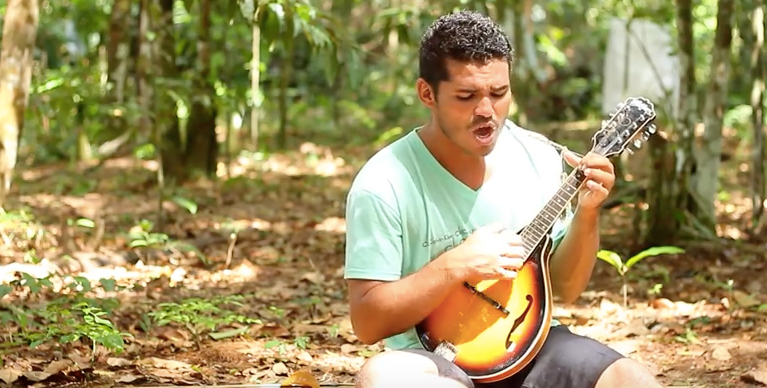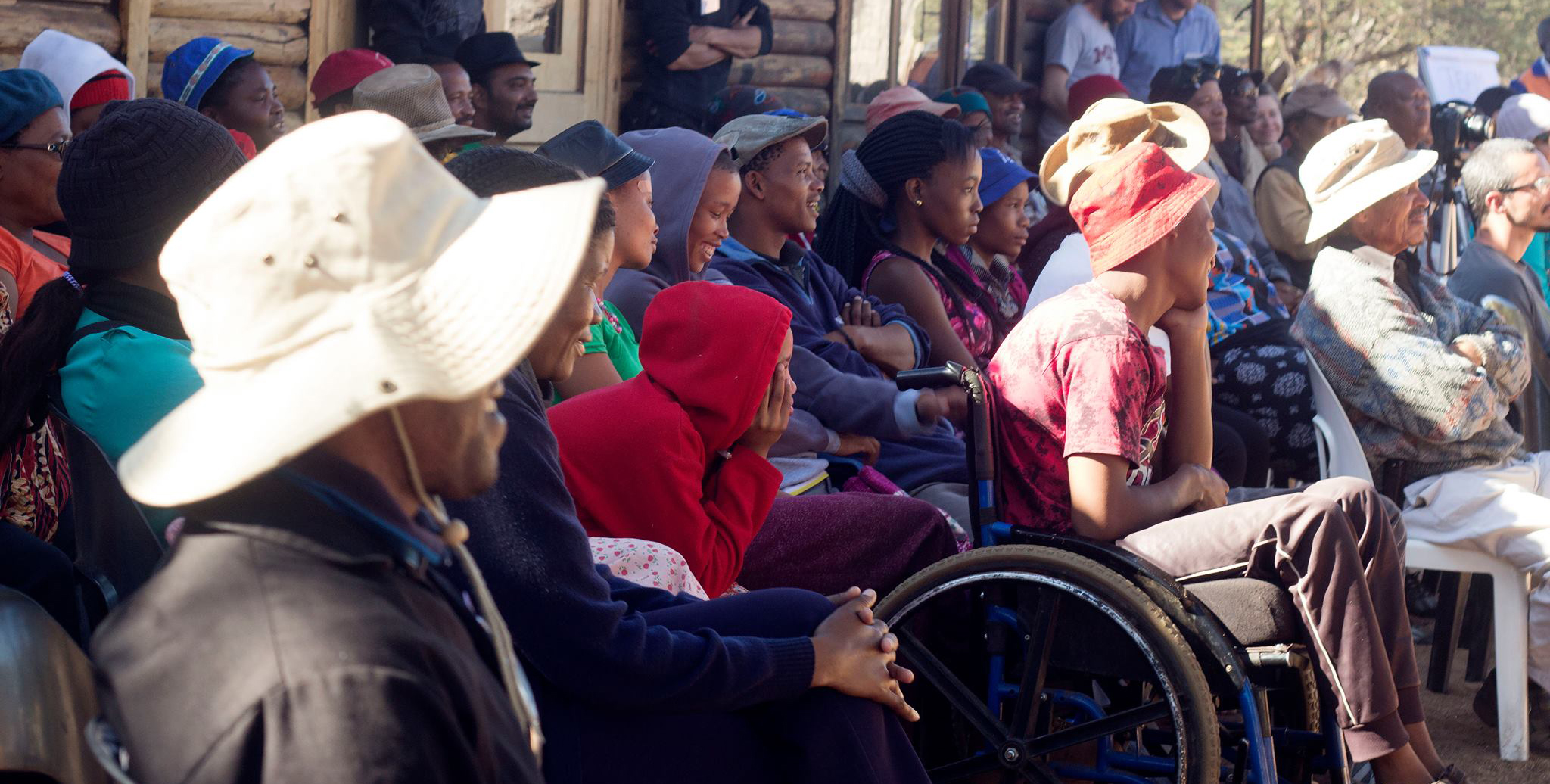IDDS Botswana: Co-Creating Practical Technologies to Improve Desert Livelihoods
“Morning circle!” This is how every day began in the cozy, sleepy village of D’kar, Botswana. Forty participants from all corners of the country and the world—India, Vietnam, Brazil, Uganda, Kenya, United States, United Kingdom, and Zambia—slowly made their way through the deep Kalahari sand to the fire circle. Huddled together by the wispy fire, they shared appreciations for each other, their hopes and dreams, problems and solutions, and learnt about a different culture through a song, dance, or game. For the next four weeks, their lives continued to intertwine as they worked closely to learn more about each other and the Naro culture and to build six working prototypes that addressed specific needs of the D’kar community.
This vibrant team of engineers, designers, farmers, artisans, scientists, and students of all ages and backgrounds spent their time learning about the design process and then applying this knowledge in practical ways. The participants developed prototypes such as interlocking blocks, a Morama nut sheller, a human-powered washing machine, a solar bead furnace, a deep sand wheelchair, and a sustainable tea maker. Here is a snapshot of each of the projects:
Xg’ae (Interlocking Blocks)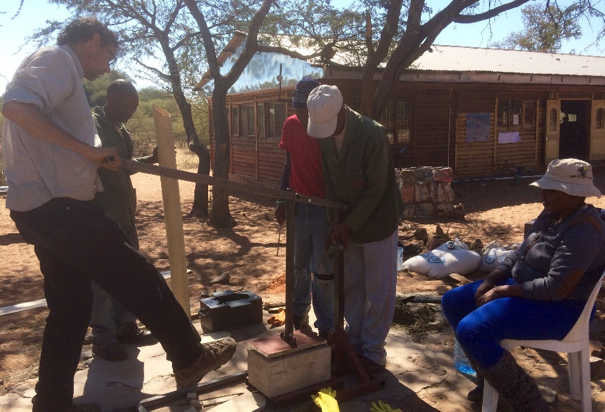
The Xg’ae team explored different ways of creating durable, cost-effective ways of housing. They built a press to make interlocking blocks which can be assembled into traditional round houses called rondavels with no mortar or skilled labor. These interlocking blocks will create comfortable and long-lasting homes that will promote the safety and well-being of the D’kar community, especially in the event of natural disasters such as flooding.
Download the team's full report, or view the at-a-glance poster!
Cgui (Morama Nut Sheller) 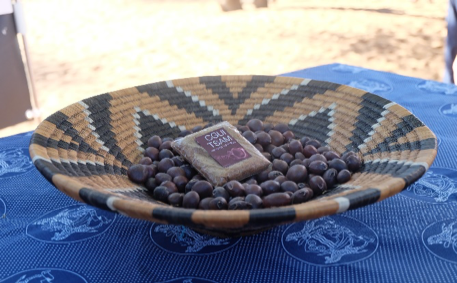
The Morama nut is indigenous to the Kalahari Desert. It is widely used in the D’kar community given its high nutritional value. However, given its hard outer shell and the traditional method of shelling using stones, the current process is laborious. The Cgui team built two prototypes: a simple handheld cracker and a rotary machine. The handheld cracker can shell Morama nuts at a faster rate. The rotary machine can crack larger quantities of Morama nuts and has the potential to be used commercially. Additionally, the team researched the possible different products that can be made from the Morama nut and tested out a Morama-based hot beverage called “Cgui Tsam” that could be produced locally, stirring up potential entrepreneurial activities.
Download the team's full report, or view the at-a-glance poster for coffee or the sheller!
Ez Ncoro (Human-Powered Washing Machine) 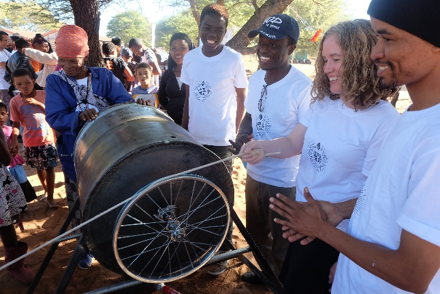
The Ez Ncoro Team built a simple, low-cost, human-powered washing machine with the aim of reducing the time and effort required to wash clothes and conserving water, a precious commodity for the D’kar residents. With such a product, the D’kar community, especially the women (who are culturally assigned the role of washing clothes) can use their extra time towards rearing their families or running businesses.
Download the team's full report, or view the at-a-glance poster!
Cam Qg’am (Solar Bead Furnace) 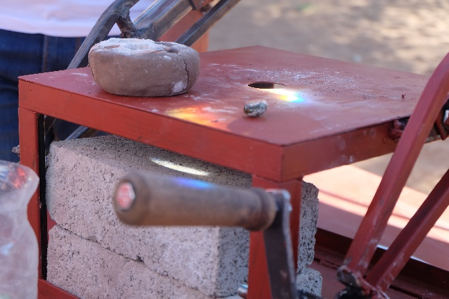
One of the primary sources of income for D’kar residents is traditional jewelry made out of ostrich egg shells and glass beads. The Cam Qg’am Team built a solar bead furnace which utilizes the power of the Kalahari sun and local materials to make glass beads. This furnace will reduce the overall cost of the beads, provide a more consistent supply, and allow jewelry makers in D’kar to customize their own glass beads.
Download the team's full report, or view the at-a-glance poster!
Huiku (Deep Sand Wheelchair) 
Wheelchair users in D’kar face difficulties in navigating through the deep sand and gravel terrain, exerting a lot of effort or relying on others to help. The Huiku team developed accessories which include wider wheels and levers to drive the wheelchair more easily through the sand while maintaining the user’s comfort level. The wheels are also more durable to protect from sharp stones or thorns that are usually buried in the sand. Learn more about this team's journey in our latest blog on the wheelchair project!
Download the team's full report, or view the at-a-glance poster!
Ceekg’am (Sustainable Tea Maker) .png)
Tea and fire are two important aspects of the D’kar culture. However, firewood is a scarce commodity and can be very difficult to find. Given this context, the Ceekg’am team created two prototypes. They first created fuel briquettes from agricultural waste (maize and donkey waste) that is more commonly found in the area. Secondly, they built a stove that will use the alternative fuel (briquettes) and firewood to efficiently boil small quantities of water throughout the day, providing households with a more sustainable fuel source for their tea and family fires.
Download the team's full report, or view the at-a-glance poster!





